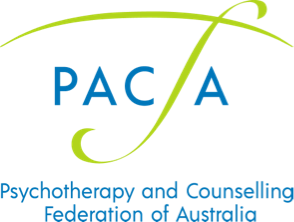The Psychology behind mental confusion
Are you feeling Confused?
Lately, in my practice as a Gestalt Psychotherapist I have been hearing a word more often than usual; confusion. While it is normal to feel confused from time to time, prolonged periods of confusion can leave you feeling overwhelmed. This uncertainty of not knowing can often lead people into the quagmire of rumination, self-doubt and a feeling of powerlessness. As you dance around the in-decision you become more anxious, stressed, avoidant and a whole host of other draining and unsettling emotions.
Once you are feeling emotionally confused it is not always easy to know what to do with the emotions generated by the confusion. Often, I see people lose confidence in themselves and their ability to understand how they feel and to stand by their feelings. They become overwhelmed by their mixed feelings and begin to experience the push-pull of conflicting emotions.
What can you do when you feel overwhelmed with confusion?
Firstly, breathe deeply and slowly this will kick in your parasympathetic nervous system, which in turn will have a calming effect on your body and mind. More importantly it will stop you from acting rashly. Secondly, spend some time tuning into you! Sometimes confusion comes from getting too much advice from others? Allowing ourselves to be influenced by others or for others to make the decision for us can create a disconnect between our mind (thoughts) and our body (feelings). This in turn can create more turmoil. Having said that, sometimes getting some sound advice from a trusted friend can alleviate our confusion, providing we are discerning about whether it feels genuinely right for us in our whole body (i.e. our body and mind)
What do I mean by tuning into you?
Tuning into you simply means to take time to develop the skill of finding the words to describe, name and express how your feeling. It takes practice and patience to tune in and you can do it quietly by yourself. Just allow yourself to be curious and kind without pressure to understand how your feeling straight away. Emotions can arise in a cluster, all competing for attention. It takes time to practice learning to name and discern between feeling states. By staying with your emotions and learning to identify your emotions accurately you will increase your emotional intelligence. That is, you will gain greater self-knowledge and understanding of yourself, you will also be able to communicate and respond to your needs and emotions more effectively.
All emotions are signals that you should be paying attention to something. Once you begin to identify and label a feeling correctly, you can figure out what it’s trying to tell you about your life or your behaviour, then you can take steps to address those messages without feeling so confused!
Sarah Bergman provides counselling through the practice of Gestalt Psychotherapy for individuals, families and couples. Sarah is an accredited member of (PACFA) and her private practice is situated in Tweed Heads. Visit www.counsellingonthecoast.com.au






